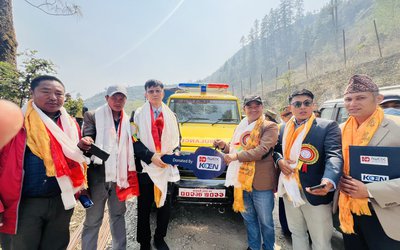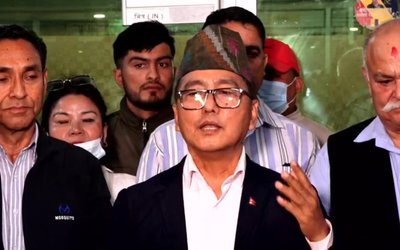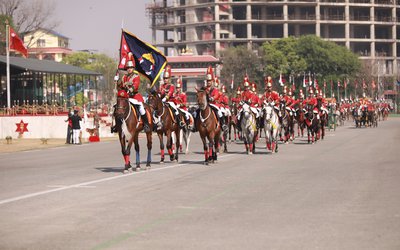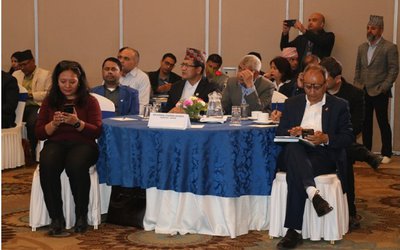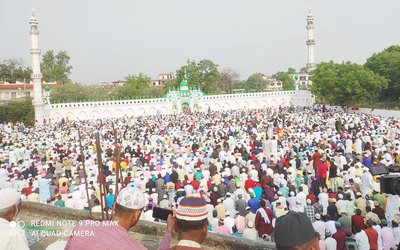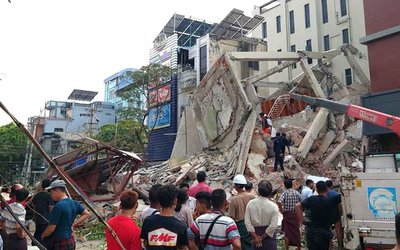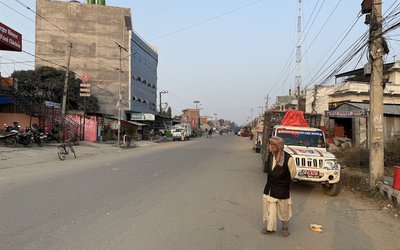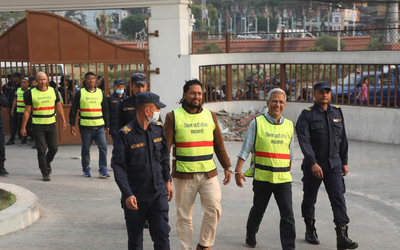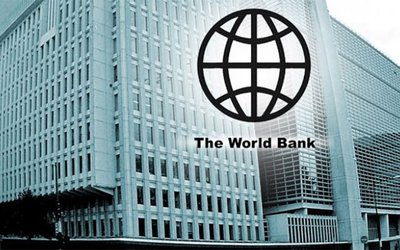
Nepal is one of the 20 most disaster-prone countries in the world. However, Nepal’s policy makers did not realize its implications for foreign policy till the major earthquake of April 25.
At a function organized by Institute of Foreign Affairs, foreign relations experts, senior officials of Ministry of Foreign Affairs and people from different walks of life actively took part in a half day seminar on Rebuilding Nepal; Post-earthquake Foreign Policy and Economic Diplomacy in the Changed Context.
“In a difficult context of post-disaster reconstruction in the country, the traditional way of handling economic diplomacy will be hardly helpful. The diplomacy now requires being more robust, scrupulously creative, functional and contributive towards achieving long term development goals. Keeping abreast with this new dimension in diplomacy and our specific needs and priorities in the aftermath of the disaster, the government is coming up with the country specific strategy,” said foreign minister Mahendra Bahadur Pandey.
Moderated by acting foreign secretary Shanker Das Bairagi, former foreign secretary Madhuraman Acharya and Dr. Min Bahadur Shrestha, the event saw executive director Nepal Rastra Bank presenting two papers, which were commented by former vice chairman of National Planning Commission Dipendra Bahadur Chettri and Dr. Khadga K.C, associate professor of TU.
As Nepal is one of the vulnerable countries of the world in terms of disaster, the debate on foreign policy dimension in the present context of earthquake is timely and significant.
The data on human mortality for the period 1971-2014 shows more than 35,000 deaths, 50,000 injuries, 3,000 missing and approximately 8 million affected people. More people are killed by disasters in Nepal than in any other country in South Asia.
The studies have also shown that Nepal is exposed to a multitude of hydro-meteorological hazards, including floods, landslides, droughts, windstorms, hailstorms, cloudbursts, fires and epidemics.
Of the 75 districts, 49 are prone to floods and/or landslides, 23 to wildfires, and one to windstorms (NDR, 2009). According to one study, Nepal is ranked the fourth most vulnerable country in the world in terms of climate change-induced hazards. A survey of 200 countries ranks Nepal in the 11th and the 30th places as the most vulnerable country in terms of earthquakes and floods respectively.
In the last 20 years, properties worth over billions of dollars have been lost. In the recent earthquake alone, Nepal lost almost 8 billion dollars worth of losses.
“Ministry of Foreign Affairs is serious about the situation. Foreign Ministry cannot add a separate division for disaster. However, Foreign Ministry needs to more closely monitor all the international negotiations,” said acting secretary Bairagi.
As natural disaster is now-a-days not only an exclusive sphere of influence of particular country, it involves international concern for the cause of humanity.
“In the last earthquake, we were unable to gauge the international participation in the rescue. As soon as the cabinet called for international support, we received hundreds of military rescue missions from aboard creating a lot of problems in handling them,” said former chief secretary Leelamani Paudyal. “Foreign Ministry needs to be better prepared for the future.”
Welcomed by Yadav Khanal, Resource Person of IFA, executive director Rishi Raj Adhikary said it is necessary to allocate adequate resources with well-trained diplomats here and abroad so that Nepal can efficiently advocate for its economic agendas in the international arena through proper negotiations.
As Nepal is a party to several international conventions on disaster related issues and agenda, there is the need to develop enough well trained manpower in the ministry of foreign affairs to look into the area of disaster.
- IME GROUP: Expands Into Paper Industry
- Mar 24, 2025
- CPN UML: Instigated By India
- Mar 23, 2025
- ADB’S CHIEF ECONOMIST: Nepal Reduces Poverty
- Mar 11, 2025
- FM DR. DEUBA: A Successful Visit
- Mar 11, 2025
- MD GHISING: Target Of Personal Grudge
- Mar 09, 2025
